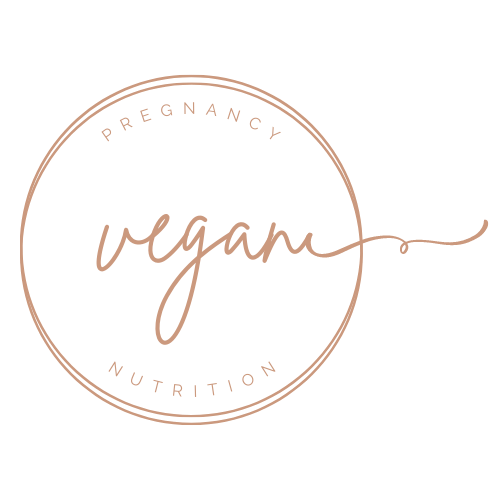Top Six Healthy Foods You Should Avoid If You're Pregnant: For Vegan Mamas
written by Clarissa Hauber, edited by Maya Bach, MPH, RDN
As a vegan mom-to-be, you fully subscribe to the power of plants. Plants are naturally nutrient-packed and abundant in prebiotics, iron, fiber, and more!
When growing a tiny human, it's essential to rethink how we approach specific plants.
Certain plants, plant extracts, and plant-based products may pose a safety risk for expecting vegan mamas. It's important to note that while the foods listed below should be avoided when possible, eating or drinking these in an isolated instance poses a low risk of something negative happening.
My goal is to empower you with this information so you can decide what is best for your body and baby. We all have a different tolerance for risk, and ultimately, it’s up to you!
Kombucha
Kombucha is a fermented tea composed of black tea, sugar, bacteria, and yeast. Because of fermentation, kombucha usually contains a small amount of alcohol – anywhere from ~1% and sometimes up to 3%. As alcohol may pose a significant threat to a baby's development and increase the risk of preterm birth, it’s best to avoid kombucha consumption. Additionally, most store-bought kombucha is unpasteurized. The FDA recommends pregnant women avoid unpasteurized products – such as kombucha – to minimize the risk of consuming harmful bacteria which may lead to foodborne illness. An avid kombucha drinker? Consider sparkling water with a splash of ginger juice and cranberry or try a drinkable, plant-based, probiotic yogurt by Califa Farm, Siggi’s, or Forager.
2. Raw Sprouts
Unlike other produce, sprouts are grown in a warm, wet environment that fosters the growth of bacteria (commonly Salmonella, Listeria, and E.coli). Even heating the sprouts in the oven or on the stove may not be enough to kill off the harmful bacteria. So to avoid any risk of foodborne illness – which can lead to severe complications surrounding your pregnancy, including miscarriage and preterm birth – it's best to steer clear of raw sprouts when you’re expecting. This includes, but is not limited to, mung bean sprouts, alfalfa sprouts, and radish sprouts. Is sprouted bread safe for pregnancy? Because it’s processed differently, sprouted bread is generally safe to consume as long as you’re following general food safety guidelines.
3. Homemade Kimchi
Due to the lack of standardized sterilization processing, homemade kimchi carries an additional risk of bacterial growth. Stick to store-bought kimchi during pregnancy to avoid any foodborne illness risk. Consider making coleslaw with a dairy-free mayo, black pepper, pasteurized apple cider vinegar, dijon mustard, ginger, some brown sugar, and siracha. You get the crunchiness and the spiciness without the added risk!
4. Turmeric Supplements
Recognizable by its vibrant yellow color, turmeric is an Indian spice known for having numerous potential health benefits such as reducing inflammation in the body and fighting free radicals. Turmeric supplements encapsulate a higher dosage of turmeric than the amount used for cooking. Some studies show that a concentrated amount of turmeric may lead to uterine bleeding, increasing the risk of preterm birth. To avoid this risk during pregnancy, opt against taking any turmeric supplements.
5. Herbal Teas
Despite the popularity of herbal teas, insufficient evidence surrounds their safety. Some herbs may be unsafe to consume during pregnancy or interfere with medication. Therefore, it's best to avoid drinking herbal teas, including chamomile, licorice, and turmeric. Some safer alternatives to herbal teas include green tea or black tea. Because green and black tea both contain a small amount of caffeine, it’s important to limit intake during pregnancy, especially if you’re caffeine-sensitive. Studies show that a high intake of caffeine, above 200 mg/day, may increase the risk of preterm birth, pregnancy loss and negatively impact a baby’s growth and development.
6. Unpasteurized Juice
Love fresh juice from the farmer’s market and wondering if it’s safe for pregnancy? You’re not alone! Because it may contain harmful bacteria that could lead to foodborne illness, increasing the risk of birth complications, it’s best to avoid unpasteurized juice during pregnancy. Always choose a pasteurized juice during pregnancy, or consider making your own smoothie!
Bottom Line:
As each food or beverage above poses a potential risk for having a healthy pregnancy, aim to avoid consumption of them. However, don't panic if you accidentally take a sip of herbal tea or eat a bite of someone's homemade kimchi - the risks of something happening are extremely low. Understanding the risks of these foods gives you the power to make educated and informed decisions surrounding what you choose to consume or not consume. What you decide will look different than someone else! Do your best to drink what's safest for your body and be patient with yourself in the process.
Ready to feel good about YOUR vegan pregnancy?
Join like-minded women inside the Vegan Pregnancy Collective to get the tools you need so you can stop worrying and wasting time Googling all things vegan pregnancy!


